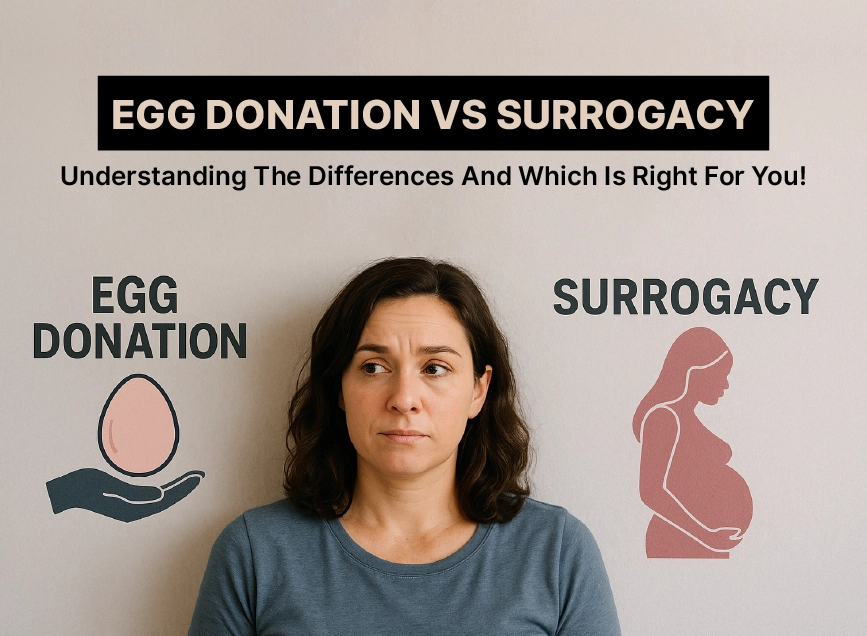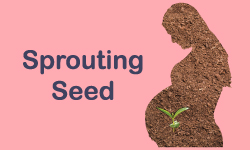
-
Posted By admin
-
-
Comments 0
When it comes to growing a family, modern reproductive technologies have created more possibilities than ever before. Two of the most popular options are egg donation and surrogacy. While both methods can help individuals and couples achieve their dream of parenthood, they are fundamentally different in process and purpose. This blog explores Egg Donation and Surrogacy, highlighting key distinctions to help you decide which path is right for your family-building journey.
Key Differences Between Egg Donation and Surrogacy
When considering family-building options egg donation and surrogacy are two common paths, but they are different in several ways.
Biological Connection:
In egg donation, the donor provides the egg, but they do not carry the pregnancy. The intended mother or a surrogate will carry the baby. In surrogacy, the surrogate carries the baby, but in most cases, she is not genetically related to the child, as it’s typically gestational surrogacy.
Medical Procedures:
Egg donation involves egg retrieval and IVF (in vitro fertilization), where the eggs are fertilized outside the body. This process is usually completed in a few weeks. Surrogacy involves transferring the embryo into the surrogate mother’s uterus. The surrogate then undergoes prenatal care and carries the pregnancy to term.
Commitment Duration:
Egg donation is a relatively short-term commitment, typically lasting just a few weeks for the donor. Surrogacy, however, is a long-term commitment, as it requires the surrogate to carry the pregnancy for 9 months and may include postpartum care.
Both egg donation and surrogacy are carefully regulated processes, with detailed medical and psychological screenings to ensure the health and well-being of all parties involved.
Which Option is Right for You?
Choosing between egg donation and surrogacy depends on various factors, including medical history, age, fertility challenges and personal preferences.
You may consider egg donation if:
- You cannot produce viable eggs but wish to carry the pregnancy.
Surrogacy may be ideal if:
- You are medically unable to carry a pregnancy.
- You have experienced repeated IVF failures or health risks during pregnancy.
How Do Egg Donors and Surrogate Mothers Get Selected?
Both egg donors and surrogate mothers undergo a detailed and comprehensive screening process to ensure the highest standards of health, ethics and safety.
Egg Donor Selection Includes:
- Thorough medical history and fertility assessment
- Hormonal evaluation and reproductive health checks
- Psychological screening and counseling
- Genetic testing (as needed)
- Age and lifestyle eligibility (typically between 21–30 years)
Surrogate Mother Selection Includes:
- Prior successful pregnancy without complications
- Comprehensive physical and psychological evaluation
- Legal and background checks
- Support system at home and willingness to commit emotionally and physically
- A clean lifestyle with no substance use
As a Fertility Bank, we maintain a meticulous and confidential database of qualified egg donors in Mumbai and surrogate mothers, ensuring a reliable match for every intended parent. Whether you’re exploring egg donation in Mumbai or considering surrogacy, our team provides ongoing support and counseling throughout the journey. With our vast network of female egg donors in Mumbai and healthy, well-screened surrogate mothers, we ensure the best possible match for your needs, guiding you every step of the way.
Final Thoughts
Understanding the differences between Egg Donation and surrogacy is crucial in making an informed decision. Both paths offer the incredible opportunity to build a family, and the right choice depends on your unique needs and circumstances. At Sprouting Seed ART Bank, we’re committed to turning your dreams of parenthood into reality.







